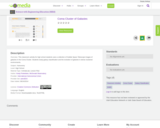
This classroom activity for high school students uses a collection of Hubble Space Telescope images of galaxies in the Coma Cluster. Students study galaxy classification and the evolution of galaxies in dense clustered environments.

This classroom activity for high school students uses a collection of Hubble Space Telescope images of galaxies in the Coma Cluster. Students study galaxy classification and the evolution of galaxies in dense clustered environments.
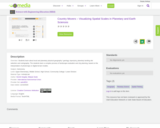
Students learn about local and planetary physical geography / geology, toponymy, planetary landing site selection and cartography. The students learn a complex process of landscape evaluation and city planning, based on the interpretation of photomaps or digital terrain models.
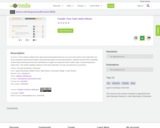
In this activity, students learn about astronomical phenomena we can see in the universe and create their own music inspired by astronomical images. By performing original musical improvisations, students enhance their knowledge of what astronomical phenomena are represented in images and experiment with creative ways of representing these using music. This activity engages students in first hand exploration of music and astronomy connections.
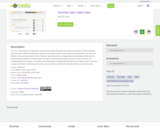
This activity is an interactive Òout-of-the-seatÓ demo that allows the students to become involved in learning about fibre optic cables by imitating the way that one basically functions. While enjoying the physicality of the demo the children will pick up basic details of light, reflection, optical properties, and applications to technology. Additionally, the activity will go into details of how fibre optics are used in astronomy technology and how it is used to improve our understanding of the universe. An emphasis should be placed on asking direct questions to the children about how these concepts can influence technology, astronomy, and our world to reinforce the concepts that they are learning about.
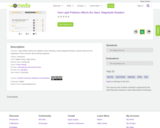
Light pollution affects the visibility of stars. Building a simple Magnitude Reader, students determine the magnitude of stars and learn about limiting magnitude.
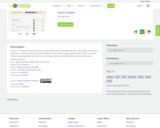
The students will learn about recent meteor strikes and the effects they can have. They will then examine their significance in the history of the planet, and what they do to the surface of a planet when forming a crater. The students will then experimentally determine how the size and impact velocity of a meteorite determine the size of the crater.
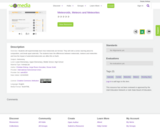
Students will experimentally learn how meteoroids are formed. They will melt a comet, learning about its composition, and break apart asteroids. The students learn the differences between meteoroids, meteors and meteorites and how the impact of asteroids/meteoroids can affect life on Earth.
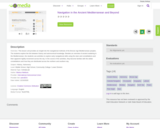
This lesson unit provides an insight into the navigational methods of the Bronze Age Mediterranean peoples. The students explore the link between history and astronomical knowledge. Besides an overview of ancient seafaring in the Mediterranean, the students use activities to explore early navigational skills using the stars and constellations and their apparent nightly movement across the sky. In the course of the activities, they become familiar with the stellar constellations and how they are distributed across the northern and southern sky.
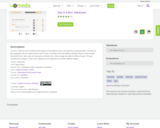
Have you ever wondered what happens to the different stars in the night sky as they get older? The Star in a Box application lets you explore the life cycle of stars. It animates stars with different starting masses as they change during their lives. Some stars live fast-paced, dramatic lives; others change very little for billions of years. The app visualises the changes in mass, size, brightness and temperature for all these different stages.
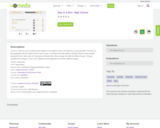
Have you ever wondered what happens to the different stars in the night sky as they get older? The Star in a Box application lets you explore the life cycle of stars. It animates stars with different starting masses as they change during their lives. Some stars live fast-paced, dramatic lives; others change very little for billions of years. The app visualises the changes in mass, size, brightness and temperature for all these different stages.